Travelling is back. By April this year, international tourism reached 97% of pre-pandemic levels in the first quarter of 2024. But why do people love it so much? Scientists are now discovering that international travel is good for you in unexpected ways. So, what are the surprising benefits of travelling? Read on to find out why travel is good for you.
This post may contain affiliate links. That means, if you make a purchase, I may receive a small commission. As an Amazon Associate I earn from qualifying purchases. For more information, read my disclaimer.
Introduction to the benefits of travelling
‘Travel is not really about leaving our homes, but leaving our habits’ – Pico Lyer
Stepping outside our comfort zone and letting go of our daily routines can be good for our health. It’s about being truly open to the ebb and flow of the world around us. Allowing ourselves to be spontaneous.
My year-long round the world trip in 2013 changed my outlook. But you don’t need to embark on a lengthy backpacking escapade to experience the benefits of travelling.
Many years ago, I planned a three-week road trip around the West Coast of the United States with an ex-boyfriend. He suggested that we play it by ear, meaning we wouldn’t book all of our accommodation in advance. Wait, what? This idea fuelled my anxiety levels. I had only ever been on package holidays. Now we would be driving around with only a loose plan.
What if we couldn’t find somewhere to stay at such short notice?
Once on the road trip, I realised that being spontaneous has its perks. We could move on from a place or stay longer, without having to worry about making cancellations. It took me a while to get used to the benefits of travelling this way.
But as the wind flipped my hair while we sped along California’s rugged coastal roads in our convertible Ford Mustang, I realised we were free. Unlike my hair, which mainly ended up in knots.
Travelling can help you save money
My biggest barrier to travelling was money. Holidays like that US road trip were expensive, because of the flights, rental car, hotels and meals out. And that was only for three weeks. I thought that if I travelled for a year it would cost me a small fortune. Especially as it meant quitting my job and saying goodbye to my regular monthly salary.
Saving money for a once-in-a-lifetime trip teaches you to prioritise what’s important in your daily life. I started off in debt, so I learned to cut back on non-essential expenses. Buying things for the sake of it became less appealing.
Pro tip: Lots of women swear by Denise Duffield-Thomas’s book, which helps you improve your relationship with money.
Instead, you may become an expert at selling belongings you no longer need on online marketplaces. Maybe you’ll get that promotion or bonus, sign up for a second job or take on extra freelance work. You’ll value every penny that comes your way, because you know that, little by little, it’s going towards funding your dream. It may take a year or more to accrue enough cash, but you know it will be worth it.
Still, I was worried about running out of money halfway through my round-the-world trip. To tackle this, I applied for a one-year working holiday visa in New Zealand, so I could earn money during my stay. These schemes are offered by a number of countries to people up to the age of 30 or 35. It’s a fantastic way to earn while travelling and experience working life abroad.
I needn’t have been so anxious. While it may seem counter-intuitive, long-term travel can work out to be cheaper than your everyday life at home. Flights are an expensive up-front outlay, but these days there are plenty of budget airlines, travel deals and reward flight points to help keep costs down. I chose to book a pre-planned set of round-the-world flights, which cost less than if I’d have booked them individually. Plus, I ended up collecting enough points to completely pay for a flight back to the UK from Thailand.
Otherwise, one of the many benefits of travelling in places like Southeast Asia is you won’t need to spend much money. Meals here are cheap, especially street food.
Read my post on the best way to manage your money while travelling.
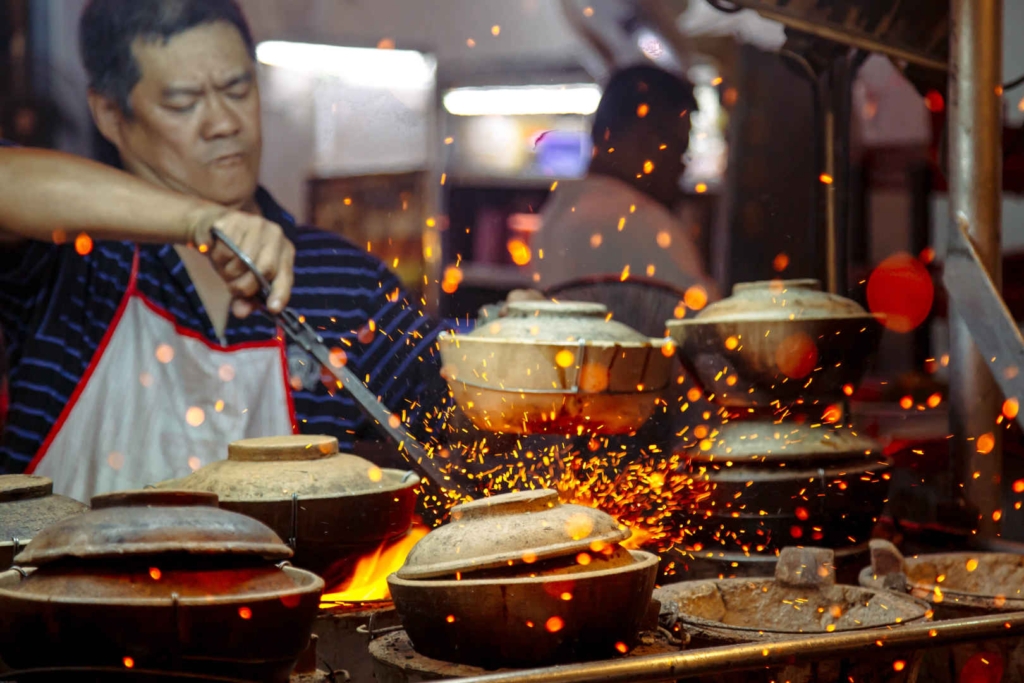
Public buses and trains are inexpensive, especially if you travel overnight so you don’t need to pay for accommodation. Dorm beds in hostels around the world are usually very affordable. If, like me, you are no longer paying rent back home, that will reduce your outgoings significantly. During my travels, I kept spreadsheets to track my expenditure.
Because I was realistic and careful with my finances, and thanks to my paid work in New Zealand, I didn’t exhaust my savings. In any case, the benefits of travelling far outweigh the costs.
Travelling reduces your stress levels
Once during my round-the-world trip, I almost missed an internal flight in Australia and found myself running top speed through the terminal, accidentally leaving behind some belongings at the security check in my haste. Another time, in Thailand, my luggage was put on the wrong plane by airline staff, so I arrived at a beach resort with only the clothes I was standing in. Unexpected situations will happen. However, research has shown that travelling lowers stress levels.
A 2013 study found that more than 80% of Americans surveyed noticed significant drops in stress just after a day or two of travelling. Other studies have indicated that the health benefits of travelling abroad continue for weeks afterwards. Taking a trip to explore somewhere new helps to take your mind off stressful situations, lower cortisol levels and make you feel more relaxed. Stepping away from our work and daily demands gives us time and space to reflect on our lives and what we really want.
For a couple of years, I suffered from daily depression and anxiety. During this time, when went on trips abroad, I was often able to rediscover my passion and joy for life. Finally leaving everything behind to embark on long-term travel was the best thing I ever did for my emotional and mental health.
One of the first things I did on my round-the-world trip was to enrol on a meditation course in Goa. Over the two weeks, I transformed from an anxious and paranoid person into someone a lot calmer and happier. It left me with tools I could use when panic and self-doubt overwhelmed me.
During my travels, my physical health improved too, as I was no longer sitting in an office all day, but constantly walking around new places and taking yoga classes at beach resorts and studios around the world.
When leaving Australia to fly to New Zealand, my flight was cancelled because of engineering problems. Uh-oh. We were left stranded for hours in Sydney airport, not knowing if we could be put onto a later flight. But travelling teaches you how to take tricky situations in your stride. To help alleviate the pain and boredom, airline staff gave us vouchers to spend at the airport. As soon as I realised these vouchers could be exchanged for drinks at the bar, I shared the news with fellow passengers. This frustrating experience turned into a fun one, especially when – five hours later – we finally had the good news that we could still fly to Auckland that day.
Travelling sheds a new light on home
‘No one realises how beautiful it is to travel until he comes home and rests his head on his old, familiar pillow.’ – Lin Yutang
When we return home from travelling, we realise a number of things. Firstly, how the countries we visit are different from our preconceptions, from how films and the media portray these places. How our imagination and dreams anticipate them.
I was nervous about visiting Asia for the first time, when I went to Thailand by myself. But when I arrived, I saw that in some ways it was not so different from home. I saw huge billboards, written in English, advertising toothpaste and cars. While there were definitely some things to learn, it wasn’t the big culture shock I had feared.
Not only do you learn about foreign cultures when you go travelling, but your eyes open to your own culture. Some of the customs and behaviours you take for granted are actually charmingly quirky and unique to your homeland. Your heart warms at the things that you miss, as you acknowledge the aspects you don’t miss. You notice changes and how some things never change.
The world is way bigger than your small corner of it. But it’s also smaller than you thought, as you find yourself bumping into the same people in different countries.
There’s nothing like the feeling of returning to the sights, sounds and people you know and love, after a long time abroad. But in another way, home is more than just where you grew up. Your place of birth or where you went to school become just a part of your story, as you start to fall for faraway places. When you end up staying for weeks or months and make friends there. You realise that you could feasibly set up a life in this new place. Home becomes a more fluid concept.
‘For more and more of us, home has really less to do with a piece of soil, than you could say, with a piece of soul.’ – Pico Iyer
Travelling teaches you about yourself
Travelling is an investment in yourself. The more you travel and encounter new people and places, your experiences will subtly change you internally. Slowly, your perception of yourself, your relationship with others and your place in the world will transform.
Being exposed to so much change and many new things on your journeys will shake up the patterns your mind normally follows. For me, my anxiety and self-doubt melted away as I realised I was strong and capable of navigating the world on my terms. I no longer had any external influences or expectations or rules to follow, it was just me, my backpack and the world. As a result, I became a lot kinder to myself.
If you are feeling lost and directionless in your life, to travel the world gives you room to breathe. To just be. The space created for your heart and mind is invaluable in helping you discover a new purpose. To know what’s important and meaningful in your life. Even if it’s just to keep travelling. You can even reinvent yourself along the way. You are totally free.
‘A long stretch of road can teach you more about yourself than a hundred years of quiet.’ – Patrick Rothfuss
Mary Helen Immordino-Yang, an associate professor at the University of Southern California, says psychological research backs this up:
‘Foreign experiences increase both cognitive flexibility and depth and integrativeness of thought, the athe ability to engage with people from different backgrounds than yourself, and the ability to get out of your own social comfort zone, is helping you to build a strong and acculturated sense of your own self.’
Travelling allows you to trust in people
As a child you are taught to be wary of strangers. When you grow into an adult, you may find yourself sticking to the same few people you know. Travelling encourages you to be open and meet new people.
It’s normal to worry about travelling solo, but it’s easy to make friends. Many other solo backpackers are doing the exact same thing as you and staying in the same places. As the walls of home life fall away while travelling, you and others are free to show up as your authentic selves, without judgement or expectation. You can express yourself however you want. You are simply people who have made the same courageous leap to go and explore the world.
For this reason, you will find many travellers are a lot more open than the people you may encounter at home. You can quickly become great friends with people you’ve only known a few hours. Friendships while travelling are often both intense and fleeting, but you never know when you might cross paths again.
Strangers can be kind and friendly, willing to help you out or even offer you a place to sleep for the night. Of course, you still need to be careful and trust your instincts, like you would anywhere. But I was surprised by the generosity of people I had only just met or whose contact details I’d been given by a mutual friend or another traveller. There are plenty of good people out there.
As you allow yourself to relax and be yourself, and as you become friends with people you’d never have met at home, you’ll start to realise that we are all connected. There is not much of a gap between a stranger and a friend.
Columbia Business School professor Adam Galinsky has conducted several studies into the benefits of international travel:
‘We found that when people had experiences traveling to other countries it increased what’s called generalised trust, or their general faith in humanity,’ he says. ‘When we engage in other cultures, we start to have experience with different people and recognise that most people treat you in similar ways. That produces an increase in trust.’
Travelling boosts happiness for longer
Someone wise once said to me, always have a holiday booked and then you will be happy. On your way back from a trip? Buy your next flight or train tickets. Even if the next vacation is months away, you will still feel the benefit. According to a Cornell University study, buying an experience – even the anticipation of it – makes you happier than buying products.
Of course, holidays make you feel good. But the research proved that even knowing one is in the diary is more pleasurable and exciting than waiting in line for a new pair of shoes or for a new phone you’ve bought online to be delivered. From just planning a trip, you will notice a direct increase in happiness.
The benefits of travelling abroad begin way before you’ve put on your out-of-office notification at work. And the relaxed state of satisfaction that you feel during and after travels lasts longer than the sugar rush of a material purchase.
Travelling makes you more resilient
When I was a young student with dreams of travelling, I never thought I could go out into the world alone. Even when you’re older, the idea can be scary. Taking the plunge to go by yourself and spend time somewhere unfamiliar is exciting and intimidating. Finding your way through the joys and challenges of these new environments can help you find mental and emotional resilience that you never knew you had.
Taking yourself out of your comfort zone toughens you up. You are forced to adapt to a place where you don’t know all the rules. Sometimes you have to go with the flow and know that you can’t control everything. Especially in places such as India, where there can often be surprises around the corner. But you learn you can cope with unexpected situations. They are the perfect foil to teach you to manage your anxieties and hang-ups. Other times, you will be pleasantly surprised that things go a lot more smoothly than you imagined, despite being halfway around the world by yourself.
When you get home afterwards, these experiences can help you deal more calmly with tricky situations that may have previously triggered an emotional reaction. You find that you are more resourceful than you realised. You become less attached to belongings, as you have learned to travel with just a few items and clothes in your backpack. And you understand better when to be proactive and when to be patient.
Travelling enhances your creativity
When I embarked on my round the world trip, I was keen to reconnect with my creativity. I felt like after years of corporate life, I’d left this side of me far behind since my schooldays, when I was always sketching or inventing stories. One of the benefits of travelling is it can help you become more creative.
For centuries, writers, artists and philosophers have moved around and lived abroad to fuel their creative juices. Now, scientists are closer to understanding why travelling has this positive effect on the mind.
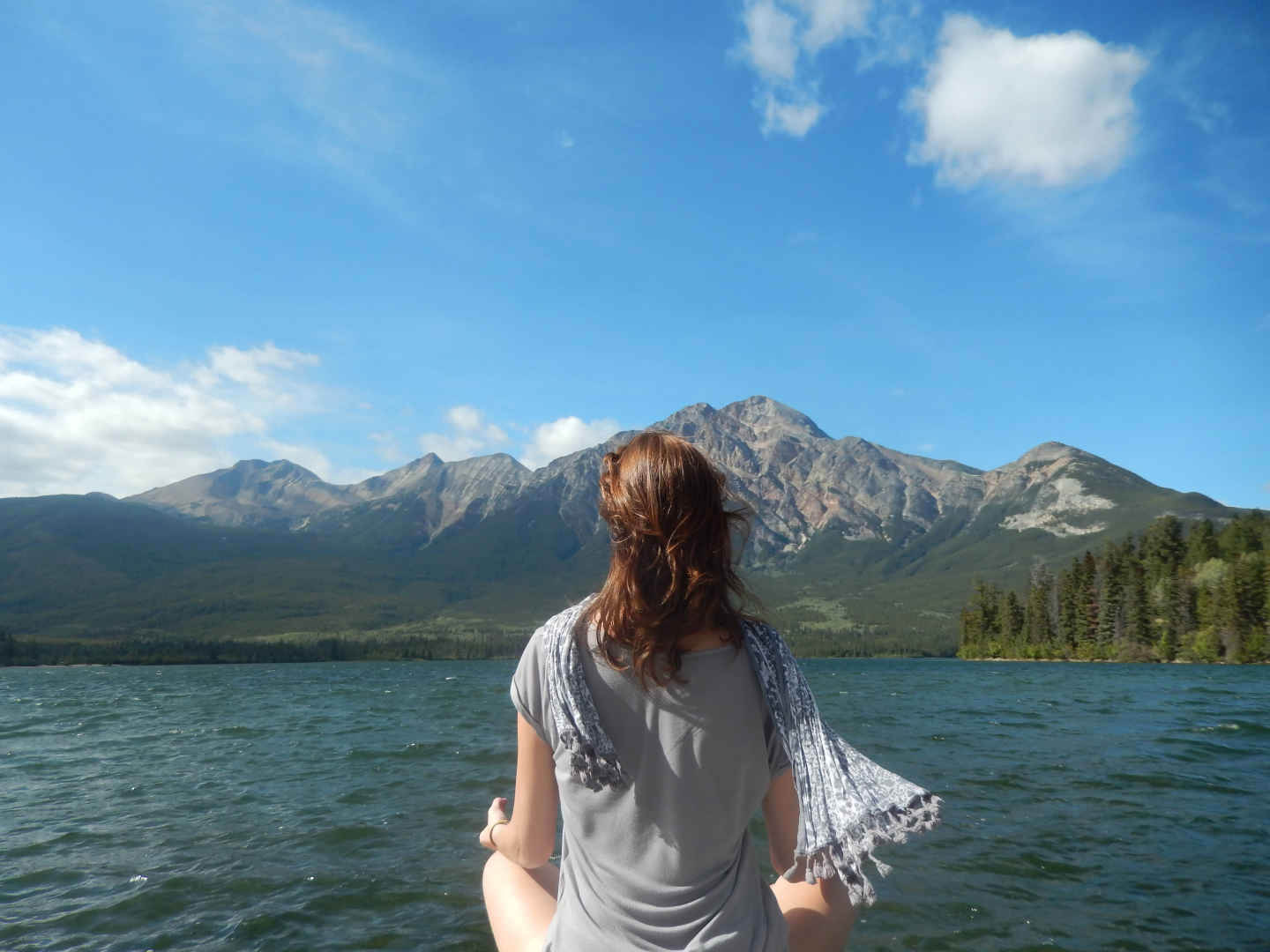
As our minds are sensitive to our environment and changes in habits, we are influenced by new sensations, which can spark and revitalise our way of thinking.
According to a study by professor Galinsky, adapting to foreign cultures facilitates creativity. He found that it enhances people’s ability to jump between ideas, solve problems in multiple ways and identify underlying connections and associations. He said:
‘The key, critical process is multicultural engagement, immersion, and adaptation. Someone who lives abroad and doesn’t engage with the local culture will likely get less of a creative boost than someone who travels abroad and really engages in the local environment.’
Travelling seems to increase serendipity
It felt like things fell into place increasingly often while I was travelling. There would be coincidences that seemed meaningful somehow. Like bumping into a friend from London in the middle of a silent disco in Goa. And moments of good fortune, such a few days earlier, when a fellow guest in my homestay, who had a motorbike but had run out of ideas of where to go, discovered that I had a guide book but needed transport. Both of these circumstances, and many more along my journey, led to adventures that became special highlights of my trip.
While you are on a long-term journey abroad, it’s like your senses are heightened and you are more open and aware than you would be normally. When you are in this state – relaxed and authentic, without trying and control things – it feels like there’s a special kind of spell that’s cast to bring these good things and people your way. That there’s a collective consciousness, strange as it may sound, that elegantly and thoughtfully knits individual threads together.
‘Travelling is one of the easiest ways to become aware of the magic that weaves all of creation together, through serendipity and synchronicity, with perfect timing,’ – Adam Siddiq
And just as seamlessly, you will influence and help other people on their journeys, whether you know it or not.
Travelling encourages you to live without regrets
‘Twenty years from now you will be more disappointed by the things that you didn’t do than by the ones you did do.’ – Mark Twain
If you can take the leap and step away from your daily life to follow your dream of travelling, you are already doing what many people don’t feel they ever could. While it is scary, your life will be enriched in more ways than you could imagine.
While planning my round the world trip for a year, I was petrified about what the ramifications would be when I returned to ‘normal’ life. Would I have any money left? Would I find a good job again?
Soon afterwards, I met a family friend at my grandmother’s funeral. She was excited to hear about my plans. When she was younger, she had left her job as a teacher to travel the world with her boyfriend. When I asked her if she had quickly found work again on her return, she smiled and said no, it had taken a while. Did she regret her travels? Not for a second.
Final thoughts on the benefits of travelling
It may not be easy every day to set off on your trip of a lifetime, but it will be worthwhile. You will make memories for life and new friends. You’ll come back to your previous life with open eyes, a bunch of stories and a thirst for more adventure. You may even have picked up some new skills and a fresh perspective on life.
‘So throw off the bowlines. Sail away from the safe harbour. Catch the trade winds in your sails. Explore. Dream. Discover.’ – Mark Twain
Next up, discover the best way to manage your money while travelling.


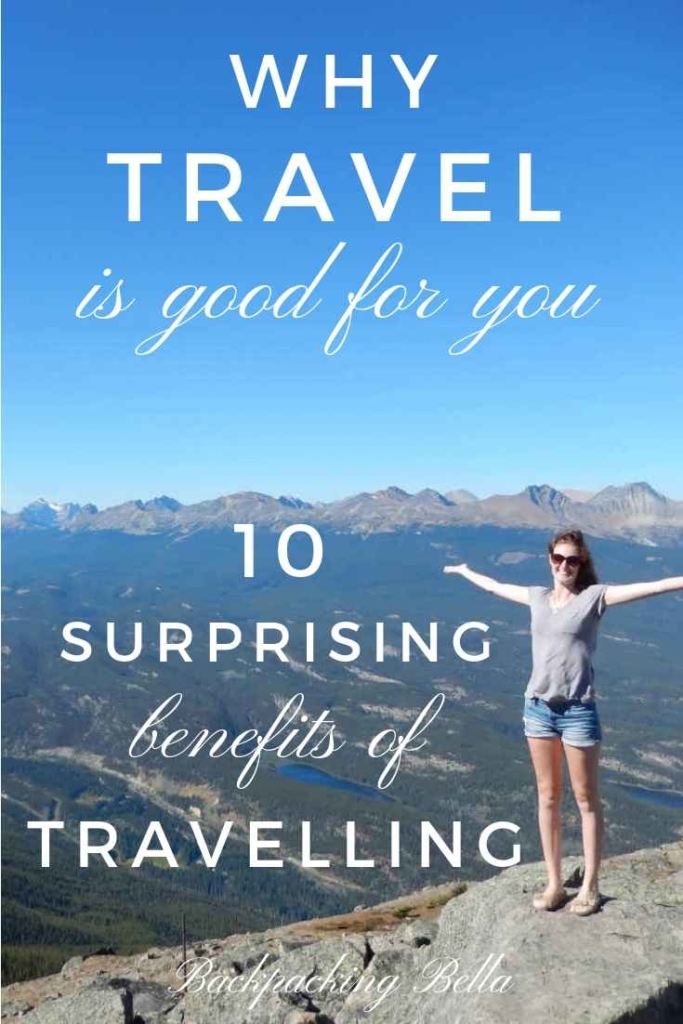
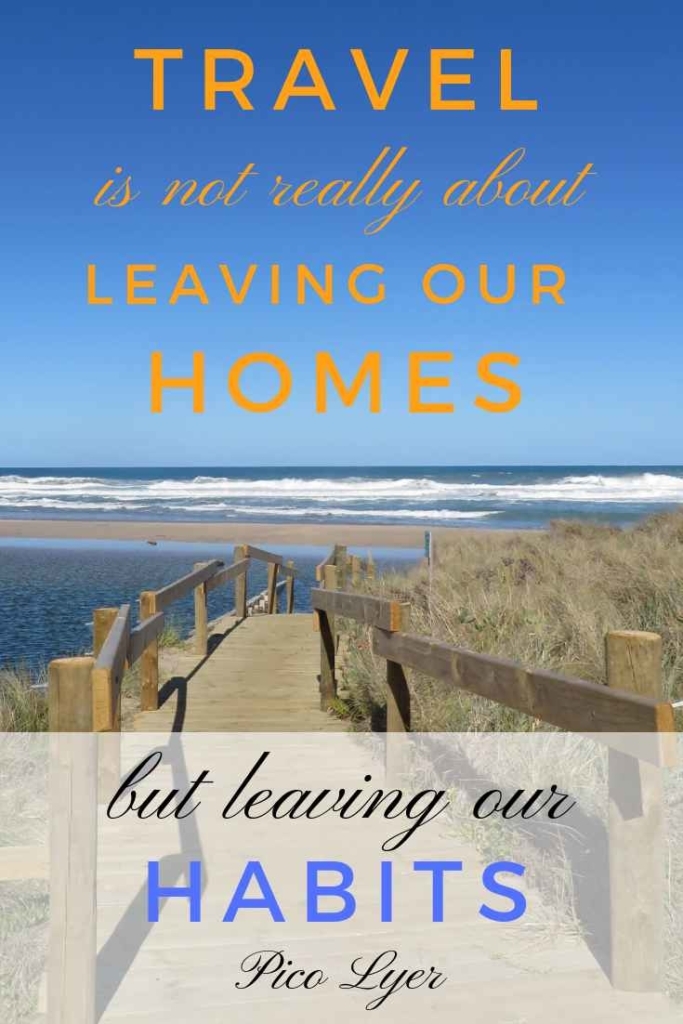

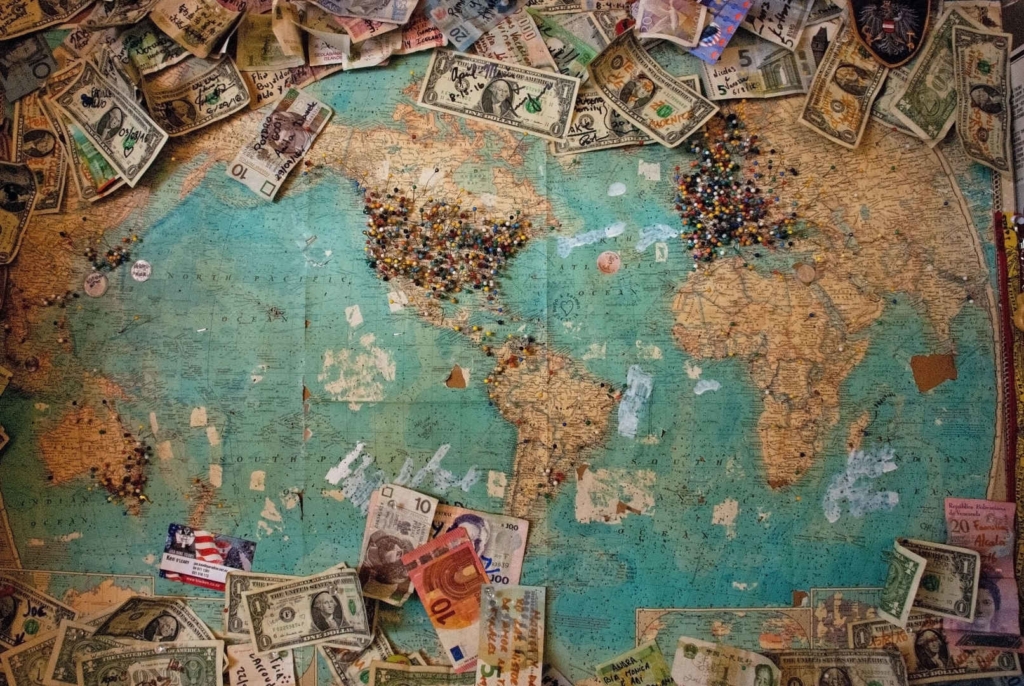

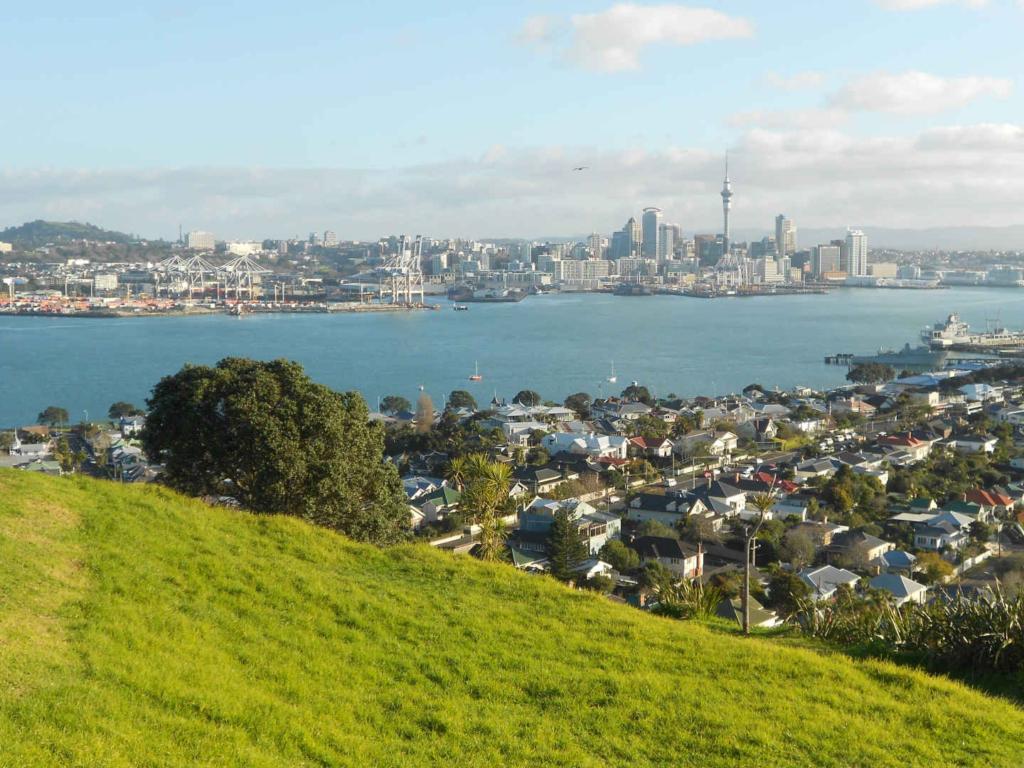
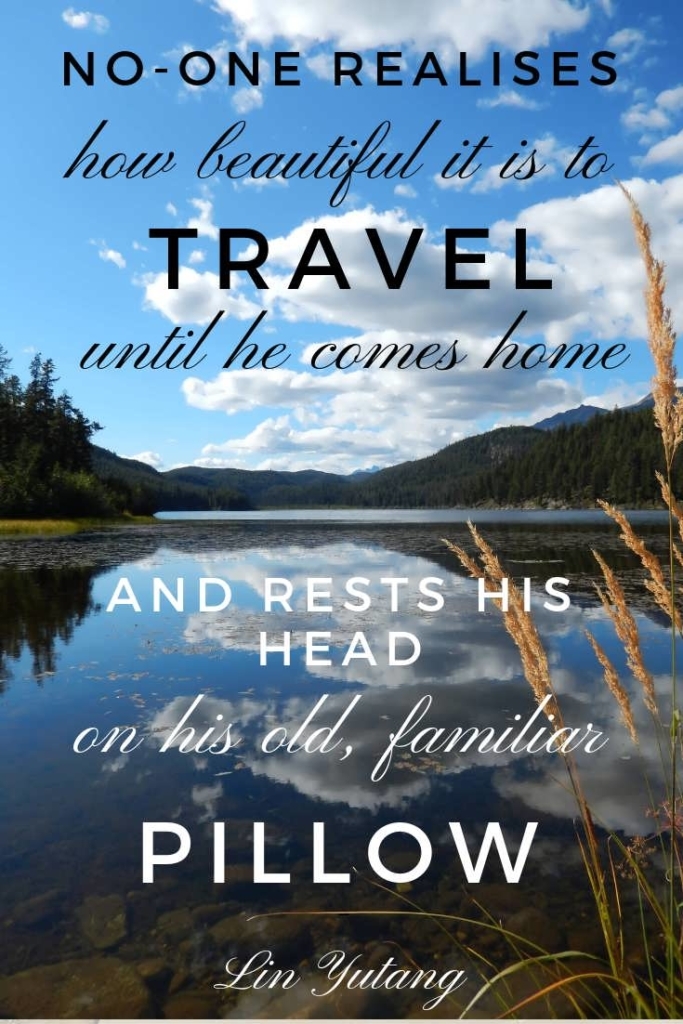




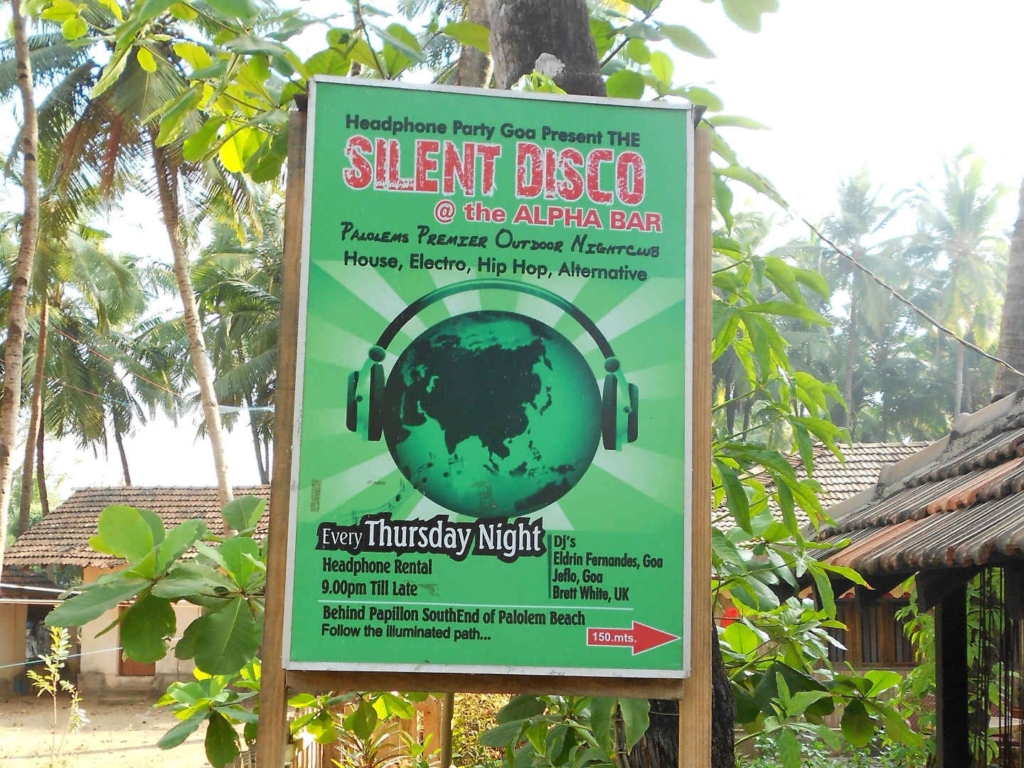
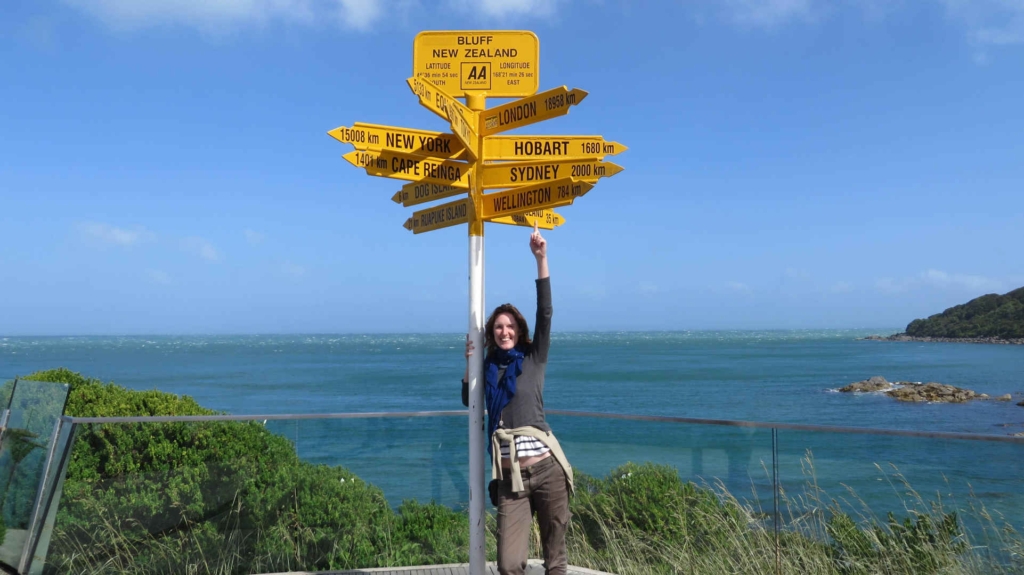

I agree completely with all of the wonderful benefits of travel, especially long-term, no set plans travel. When I first did that, my mind completely reset. I truly lived in the moment and got to know the real me. Sadly, I had to return home after a year. It was nice at first, but after a month or so, I became very depressed. It was like detoxification. Living in the moment was my drug and I needed it back! 4 months later I left again and have never returned. I hope I never have to!
Hi Stace, thanks a lot for your message. Long term, no set plans travel is the most rewarding 🙂 I agree, it can be tough when you get back home. That’s one for another blog post for sure! But you never look back from all the things you learn and experience while travelling. And it’s awesome that you’re still exploring! 🙂
Lovely blog and pictures
Thanks so much 🙂 And happy New Year!